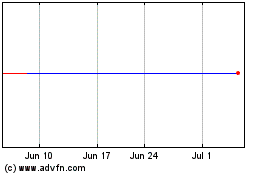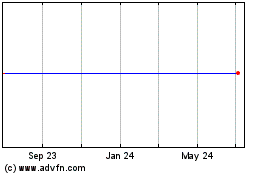Dell, T. Rowe Price Settle Buyout Lawsuit
June 29 2016 - 12:10PM
Dow Jones News
T. Rowe Price Group Inc. shareholders are getting some of their
money back after a proxy voting blunder cost the mutual-fund
company nearly $200 million.
Dell Inc. will pay T. Rowe about $25 million to settle a
long-running lawsuit over the technology giant's buyout, according
to people familiar with the matter.
That is a fraction of the almost $200 million T. Rowe would have
received had it not accidentally voted in favor of the 2013 deal. A
Delaware judge ruled last month that founder Michael Dell and his
private-equity backers underpaid for the company and ordered them
to repay dissenting investors -- a windfall that T. Rowe was
ineligible for.
In exchange, T. Rowe has agreed not to appeal a series of
unfavorable court rulings that disqualified it from a larger
payday, the people said.
The agreement caps an embarrassing saga for T. Rowe, one of the
biggest managers of U.S. retirement assets and large shareholder in
many large companies. It is an effort to do right by shareholders,
who are ultimately on the hook for the payments T. Rowe made to
affected funds earlier this month.
Mr. Dell and private-equity firm Silver Lake took Dell private
for $13.75 a share, or about $25 billion. T. Rowe publicly opposed
the buyout, arguing Mr. Dell and Silver Lake were buying the
company on the cheap just as it was poised for a rebound.
But T. Rowe mistakenly voted its shares in favor of the deal, a
back-office error that made it ineligible, under Delaware law, to
sue for a higher price in court.
Other disgruntled investors did so, and following a trial last
fall, a Delaware judge ruled that the pair had underpaid by about
$6 billion. Those investors, the largest of which is hedge-fund
firm Magnetar Capital LLC, will collect another $3.87 a share, plus
interest.
The judge ruled that T. Rowe was ineligible to share in that
bounty because of the voting mix-up. He also rejected the asset
manager's request for interest payments that would have accrued had
it voted correctly.
Under the new settlement, T. Rowe cannot appeal that decision,
the people said.
T. Rowe earlier this month said it would pay $194 million to
clients as compensation for the error, making the payment from its
available cash. The charge, the firm's largest ever one-time
deduction from earnings, will reduce second-quarter earnings by 46
cents a share, it said.
Payments were made to four U.S. mutual funds, one overseas fund,
two trusts and about a dozen other institutional client accounts.
T. Rowe paid the impacted portfolios directly, which resulted in a
relatively small performance bump.
Analysts said T. Rowe, which managed $764.6 billion in assets at
the end of March, had a strong balance sheet that could absorb the
charge. Still, the settlement with Dell helps T. Rowe recoup some
of that money and lessens the blow to shareholders.
Assuming the same tax treatment, the settlement would recoup
about 6 cents a share in earnings.
For its part, Dell avoids the risk of an expensive and uncertain
appeal. It is currently working to complete its $67 billion
acquisition of EMC Corp., a particularly complicated deal that, if
completed, would be the largest pure technology takeover ever.
Write to Liz Hoffman at liz.hoffman@wsj.com and Sarah Krouse at
sarah.krouse@wsj.com
(END) Dow Jones Newswires
June 29, 2016 11:55 ET (15:55 GMT)
Copyright (c) 2016 Dow Jones & Company, Inc.
Global X Funds (NYSE:EMC)
Historical Stock Chart
From Mar 2024 to Apr 2024

Global X Funds (NYSE:EMC)
Historical Stock Chart
From Apr 2023 to Apr 2024
